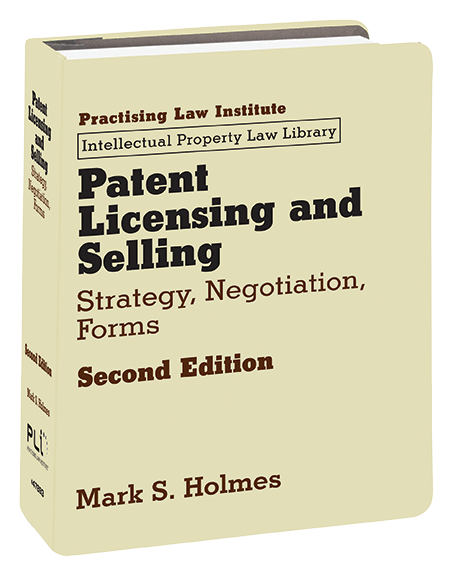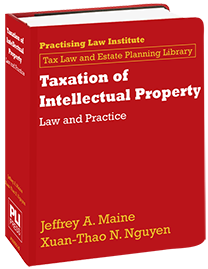
Patent Licensing and Selling guides practitioners through the fundamentals of drafting and structuring profitable patent licensing deals. Containing more than 350 sample agreements and clauses, the book provides actionable strategies to negotiate these deals. It also highlights terms that can trigger delays and disputes, strategies around exclusive licenses, and pointers for selecting markets for specific licensees. In addition, the text integrates discussion on infringement protection and enforcement steps, license duration and termination guidelines, and confidentiality considerations.
The new release includes revised and expanded coverage of the following topics:
- Definitions: New sections 1:1.1 and 1:5.1[C] discuss the implications of failing to define a term, using the as term “affiliate” as an example and showing the need to uncover the identity of each affiliate (section 1:5.1[A]) and to determine whether an entity qualifies as an affiliate (section 1:5.1[B]), as well as any limitations around the term (section 1:5.1[C]), the consequences of leaving the term “affiliate” undefined (section 1:5.1[D]), which edition of dictionary to use (section 1:5.1[E]), and the overall lessons to be learned (section 1:5.1[F]).
- Additional future licenses: Inclusion of a sample provision dealing with a situation in which the licensee discovers that he or she unknowingly developed products that infringed patents already owned by the licensor and that are not licensed to the licensee under the patent license agreement (see section 2:5.4).
- Royalties: Added information on withholding taxes on royalty payments (see NEW section 4:9.8).
- Prosecution and maintenance: Instruction on the consequences of a party’s decision to abandon prosecution and maintenance (see section 6:3.2[A]).
- Licensee efforts: Extensive coverage of a licensee’s obligation to use “best efforts” and commercially reasonable efforts (see section 12:1.1 and section 12:6, respectively).
- Technology license agreements: New coverage around licensing of other intellectual property, such as trade secrets, confidential information, and know-how (see NEW Chapter 20).
- New contract provisions: Examples 1:5B, 1:9, and 1:20 (Definition of affiliate); Example 1:41A (Choice of law); Example 1:51A (Commercially reasonable efforts); Example 2:53 (Additional future patent license; licensee infringing licensor patents not licensed under the patent license agreement); Examples 4:55A, 4:55B, and 4:55C (Tax withholding); Example 5:10 (Audit; payment for audit); and Example 6:6 (Notice of intent to abandon prosecution or maintenance of licensed patents).
The Table of Examples, Table of Authorities,and Index have also been updated.
Order a print copy today.
PLI PLUS subscribers can access this title through their subscription.








